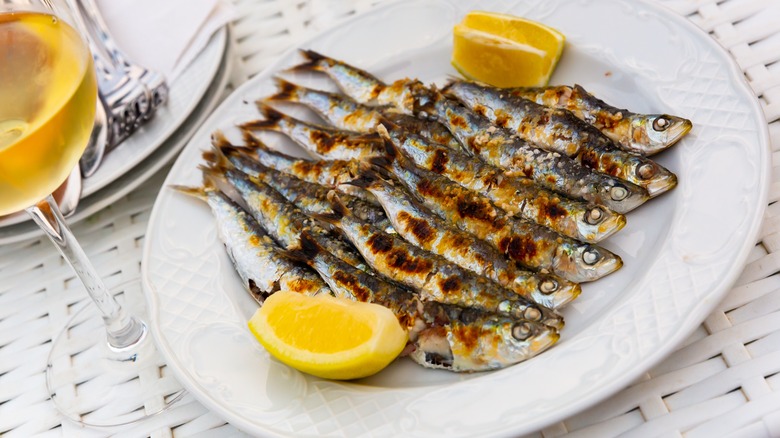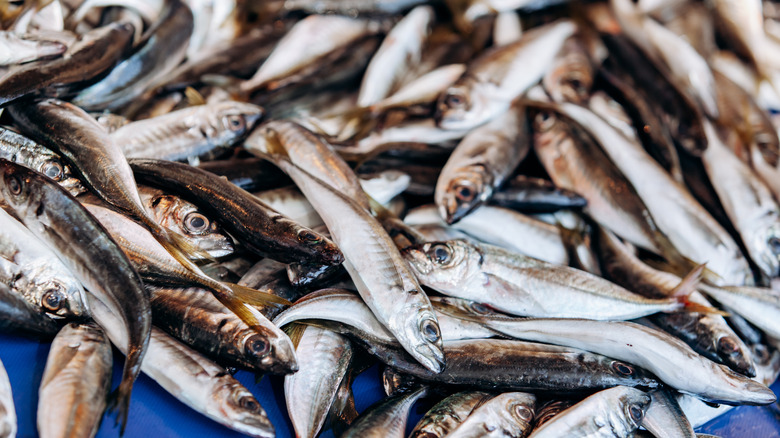The Key Flavor Difference Between Sardines And Anchovies
Sardines and anchovies are often confused, and some people may even believe they're the same thing. It's a valid misconception, I mean, have you seen them? At first glance, they look quite similar. If you're someone who mixes up the two, you may be happy to know that there are a few parallels. According to Healthline, both of the small fish are sold in cans, and they both include a healthy amount of protein, calcium, iron, vitamin B12, and omega-3 fats. Beyond that, though, they're practically as different as beef and pork.
Upon looking closely, you'll notice anchovy fillets are smaller than sardines and feature a dark, reddish color. On the other hand, sardines have a white appearance and an elongated body. And according to Food & Wine, the two fish live in different places. While anchovies enjoy warm water and sometimes even freshwater, sardines prefer temperate waters and only dwell in saltwater. Even though you could interchange them in your recipes, you probably shouldn't — these two sea creatures taste completely different.
Anchovies have a more intense flavor
Have you ever reached for a drink, and upon consuming it, realized it wasn't what you were expecting? That's what might happen if you confuse sardines with anchovies. Per Patagonia Provisions, anchovies are salt-cured, giving them a pungent kick of flavor that blends well with pizza. Sardines are milder, oily fish with a meaty taste. Both fish are delicious when grilled, and if you choose to marinate them, anchovies taste good in vinegar while sardines are recommended with something sweet and sour.
According to Food & Wine, sardines have a flakier texture as well as buttery undertones. While anchovies come pre-peeled, sardines often need the skin removed. It's also notable to bring up white anchovies, which actually taste more like sardines than regular anchovies. When it comes to pairing, anchovies are an intense flavor boost to savory dishes, whereas sardines are better suited for milder recipes (per MyRecipes).
There you have it, fish fans. Now you know which product to choose. And if you're not a fan of fish at all, at least this will make for good dinner conversation.

